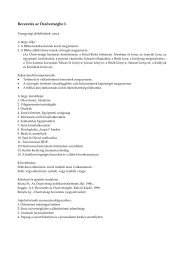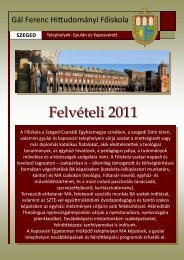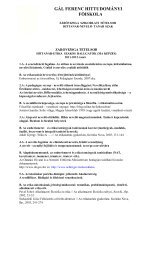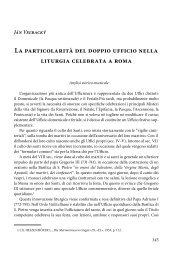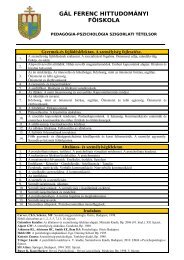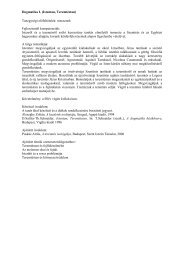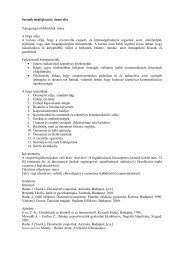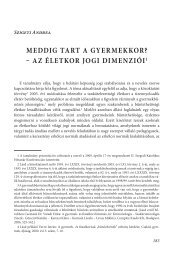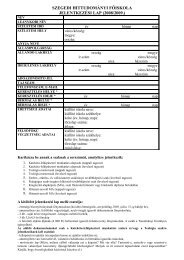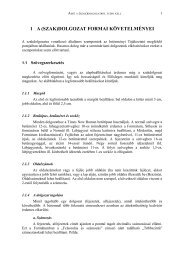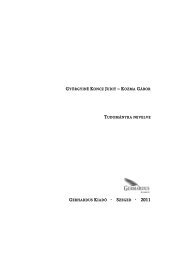Deliberationes - Gál Ferenc Hittudományi Főiskola
Deliberationes - Gál Ferenc Hittudományi Főiskola
Deliberationes - Gál Ferenc Hittudományi Főiskola
Create successful ePaper yourself
Turn your PDF publications into a flip-book with our unique Google optimized e-Paper software.
abstracts<br />
László Tringer: Psychological Devices in Pedagogy<br />
From the second half of the 19 th century, the different disciplines embraced by<br />
philosophy gradually drifted away from each other. Psychology evolved, pedagogy,<br />
psychotherapy, etc. became independent areas of science. This separation, besides its<br />
positive proceeds, has had a number of negative consequences. Development ensued<br />
in a particular area and its new results have remained within the frames of the given<br />
discipline and scarcely became common treasures. Only from the end of the 20 th century<br />
did a process of the opposite direction unroll, which can also be considered a kind of<br />
integration. The results of neurosciences impregnate the thought of psychotherapy too<br />
and the results of this area can be useful for pedagogy, which can be submitted to the<br />
service of healing and rehabilitation (for example programs dealing with autism, music<br />
therapy, etc.).<br />
The author presents those newer neuroscientific results that play an important role<br />
in psychotherapeutical investigations and constitute great significance concerning<br />
ministering relationships and thus are essential for pedagogical activities.<br />
Ján Veľbacký: The Meaning and Nature of the Christian<br />
Celebration of Sunday<br />
Postmodern culture presents us with an enormous challenge – to rediscover the<br />
meaning and nature of Sunday and how to celebrate it. The first Christians called Sunday<br />
“the first day of the week” and “the Lord’s day” and even the “eighth day”, viewing it as the<br />
day of new creation. On Sundays Christians assemble for worship and prayer, especially<br />
through the Eucharist - it is the day when we recognize Christ in the breaking of the<br />
bread. After the sixth century, Sunday became a holy day of obligation. Today, many<br />
see it mainly as a day free of work; others try to replace the Sunday celebration with<br />
various themes that have little to do with a day of the Lord. The Second Vatican Council<br />
corrected this view of Sunday, by reminding us and stressing that it is the Lord’s day,<br />
when believers rededicate their lives to the Father through Jesus.<br />
As well as setting aside Sundays to worship God, Christians should also use this day to<br />
do works of love and mercy, such as visiting the sick and helping people in need. Sunday<br />
is the day when every Christian community comes together to give thanks to God for<br />
his saving gift in Christ. They take a full and active part in this celebration of faith and<br />
love, in union with God’s people all over the world and with the whole Church. Sunday<br />
is the greatest day of the week and is the heart of the Church’s liturgical year. Each week<br />
Christians celebrate God’s love and their salvation through the obedient death and<br />
glorious resurrection of Christ.<br />
267



